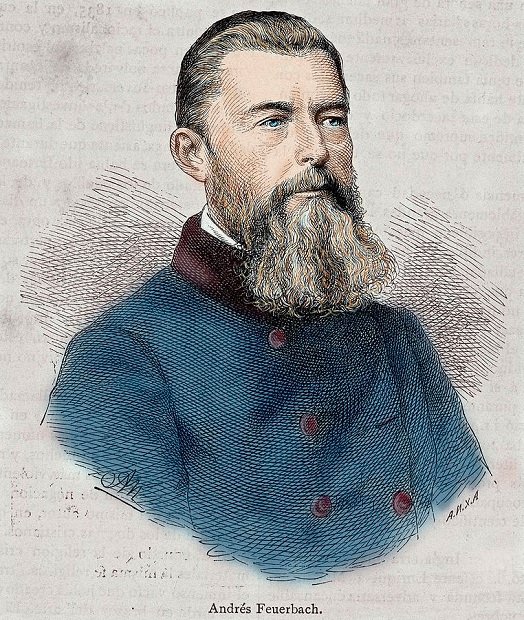Materialism. Some thoughts about the philosophy of Ludwig Feuerbach
The center of attention - the man. For reform of philosophy. The main shot of Feuerbach (1804-1872) against idealism is directed to revealing the kinship of any idealistic philosophy with revealed theology: idealism is no more than a theology. Like religion, idealism according to Feuerbach makes human thinking a supernatural essence, an absolute creator of the world. Such is the essence of not only elementary subjectivist theories, but also the most developed idealistic systems - including Hegel's absolute idealism: "Hegel's philosophy is reversed theological idealism. Hegel's philosophy has placed the essence of the Self outside the Self, separated it from the Self, has defined this essence as a substance as God-but with Hegel the essence of God is in fact nothing but the essence of thinking or thinking, abstracted from the Self, from the thinker.
Hegel's philosophy has transformed thinking, or, in other words, the subjective nature of thinking without the subject means representation, as distinct from the latter, in a divine, absolute nature. "Foyerbach collectively shows that Hegel's" Absolute Spirit "similar to the idealistic premise in the previous philosophy can not be rationally proven and is also dogmatic. Indeed, Hegel's Absolute idea is not supposed to be formal but is derived from the self-development of dialectical concepts. But in fact it remains unproven because not the actual existence of things, but the absolute self-development of the spirit is considered to be the true beginning and content of development. The fact that Hegel in the Logic begins from Being, not from the Absolute idea, according to Feuerbach is a real formalism, since "... Being is not the real beginning, it is not the real beginning." As a materialist, Feuerbach pays particular attention to the abstractness and insolvency of the idealistic traditions of being. Being in general terms expresses the material existence of things. It implies prolongation, something that is "somewhere". And breadth is a basic attribute of matter.
Therefore, being is a very inappropriate definition of ideal entities. Feuerbach understands that if philosophy is a science of nature as a whole, it can only be in the sense of a science of the universal laws of nature common to all its parts and all its formations. "Surely the stars are not the objects of immediate sensory contemplation, but we know the most important, namely that they are also subject to the same laws we are subject to." It is precisely because of this that philosophy is without preconditions - it does not pretend, but it discovers these universal laws. That is why philosophy gives the prerequisites of all other sciences - its laws are the most common basis of the existence of everything that can become the object of scientific knowledge. To reach the universal laws of reality is not in the power of pure theory alone. A person a million times in his practice encounters the same actions that flow from the same conditions to consider the universality of this relationship.

You got a 40.89% upvote from @minnowvotes courtesy of @godflesh!